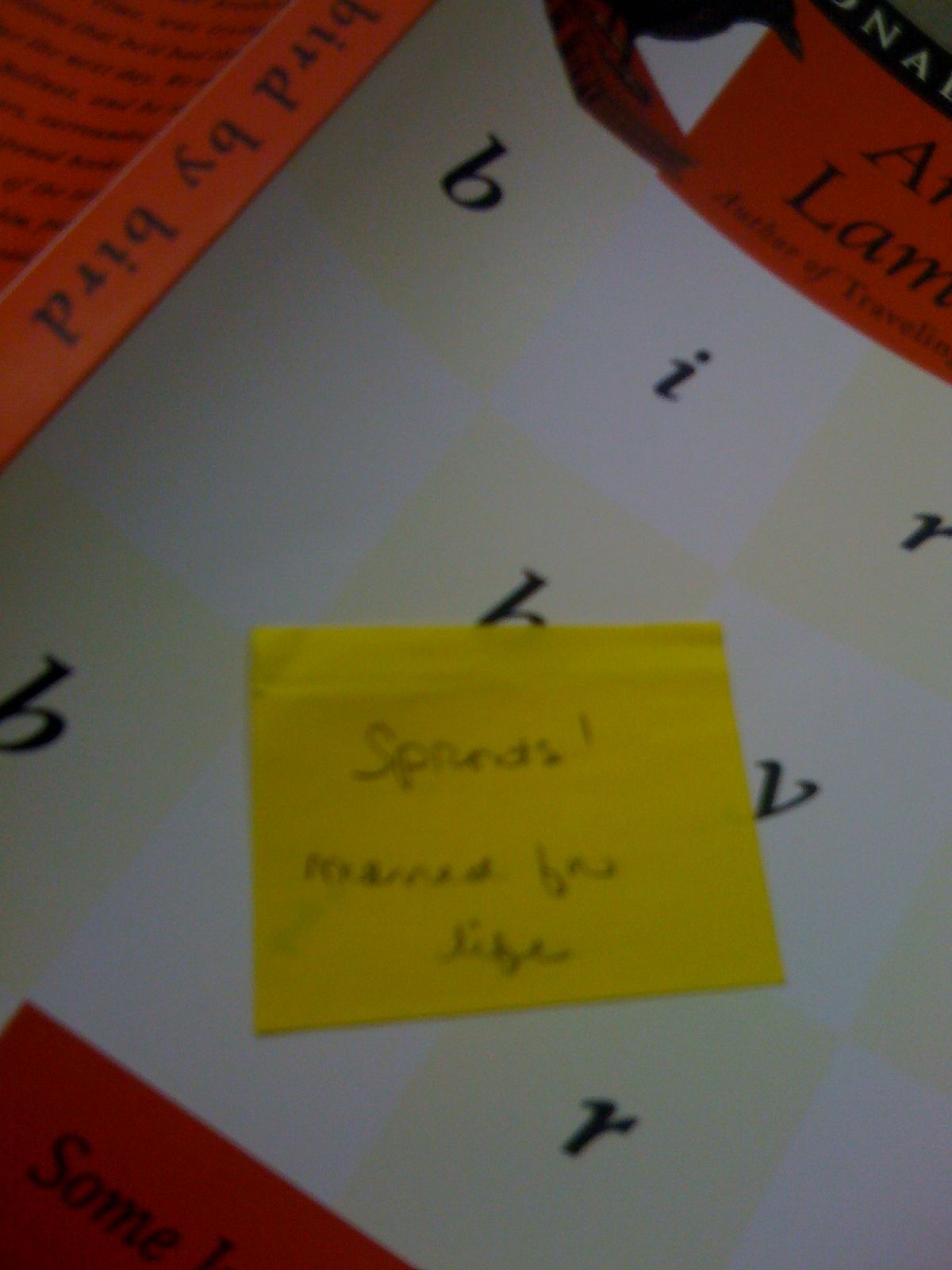I am using the last of my precious winter break Metro time to do some pleasure reading. Â Having sated myself on crime fiction, I got Scott Westerfeld’s Leviathan from the library (which I thoroughly enjoyed – highly recommended to people who like YA, adventure, steampunk, alternate history, or breathing) and ripped through it in about two days.
Waiting in my pile was a book on writing my wise mother handed to me during her last visit, Anne Lamott’s Bird by Bird.  I’m pretty sure she refrained from saying “You’ll love this,” and I think we may have discovered another way around my reflexive filter.  Just hand the thing to me without a deadline for completion.  I’ll happily get to it in my own sweet time.
I have had this book (along with “Writing Down the Bones”) recommended to me at length, and often enthusiastically, which is probably why I hadn’t gotten to either of them before now.* Â Predictably, I am loving it.**
As much as I am loving Lamott’s book, one of the charms of getting to read it in the way I did is the scattering of a few tiny post-it notes my mother tucked among the pages. Â These notes have cryptic remarks jotted on them which I understand well due to our shared history but might well be written in Urdu for all the sense they would make to a stranger.
Lamott’s book is especially good in one way because it offers you interstitial assignments – they’re not listed as such, but if the reader decided to take them that way, it is very possible to pull literal instructions from every chapter. Â In the early going, there is a section on writing about school lunches to break a mental logjam. Â Lamott is right when she says that this topic is fertile ground for stories and descriptions. Â She herself writes a few humorous paragraphs about the “code” of lunches – what was acceptable and what labeled you as “other” in the eyes of your classmates. Â I recognized exactly what she meant, even if the specifics were different when I was growing up.
My lunches, I am afraid, were never up to code. Â Mom made lunches that a 40-year-old foodie would swoon over: homemade multigrain bread, real cold cuts (no bologna in my mother’s kitchen), and often bean sprouts. Â These were thick, hearty, character-building sandwiches in every sense of the word. Â Once, a classmate snatched a tangle of sprouts out of my sandwich, screamed, and flung them away from her as if they were alive. Â They stuck to a window high over our heads and remained there for the entire school year, closely resembling the desiccated corpse of a spider.
The other thing I remember about my school lunches were the notes. Â Mom’s missives, often illustrated with quirky doodles, were like a quick squeeze of the shoulder or a warm smile. Â I remember them as full of love and humor and topical information like, “Christmas Tree decorating tonight!” or “5 more days until vacation.” Â Mom’s handwriting somehow manages to be both loopy and strong, so finding this note tucked into the pages of Lamott’s book was like something out of a time capsule:
“Sprouts! Â Marred for life.”
I laughed like an idiot on the Metro and didn’t care who noticed.
*See above re: “You’ll love this”
**I only said I have a reflexive reaction to over-enthusiastic recommendations. Â I didn’t say it was smart.






